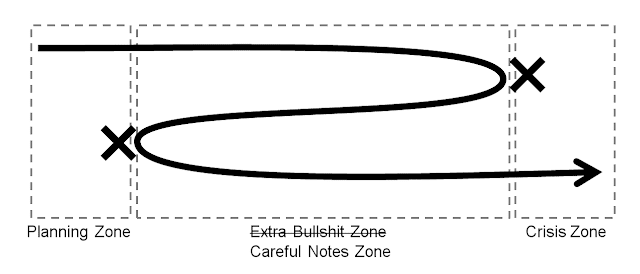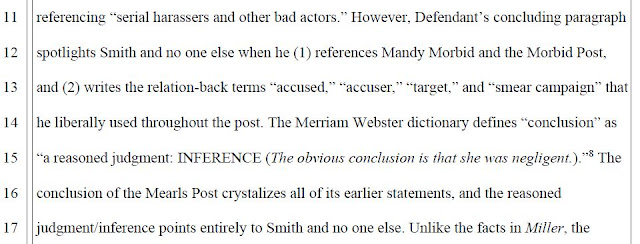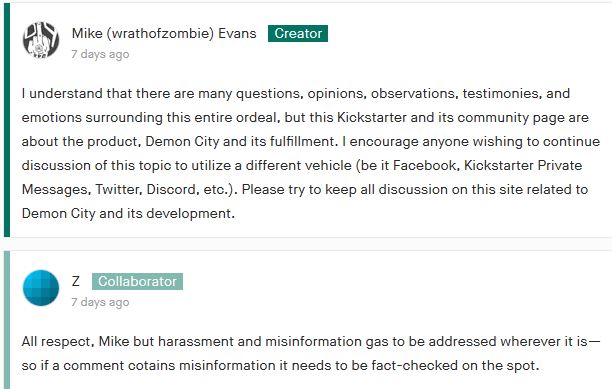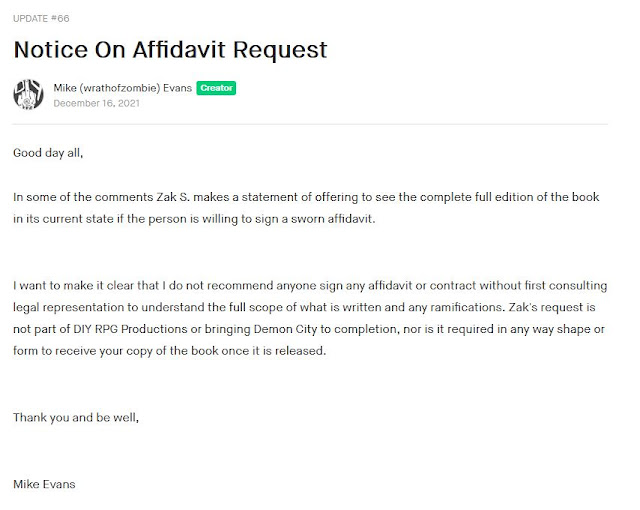In fiction, time travel typically falls into the following categories:
- Time travel can affect the past in details, but not in broad outcomes. X can travel into the past and save Y from a car accident, but Y will then die in a train accident
- Time travel can affect the past, with any effects propagating into the future. X can travel into the past and save Y from a car accident. The future that caused X to travel back in time never occurs, but it's not an issue. Potential paradoxes result in people flickering or photographs fading.
- Time travel creates a parallel world. X can travel into the past and save Y from a car accident, but this creates a Y-less timeline and a Y-containing timeline.
- Time travel cannot affect the past. X cannot travel into the past and save Y from a car accident. X's efforts will fail somehow. The past is already written.
The last option is, in my opinion, the most interesting for RPG purposes. One set of of events has already occurred; parallel non-contradictory events can also occur. See: Dark (2017), Dirk Gently's Holistic Detective Agency (2016), Timecrimes (2007) etc, etc.
The Time Bend
Time's arrow cannot be diverted, but it can be bent.
X moves forward in time. They enter the time machine, jump back in time, and then move forward in time parallel to their past self. X1 is the person before the enter the time machine, X2 is the person after the enter the time machine. X1 and X2 exist simultaneously until X1 enters the time machine, at which point X2 continues forward in time.
The past cannot be altered. When X2 exits the time machine, everything that is about to happen has already happened.
 |
| Timecrimes (2007) |
Time Travel for GMs
Any GM who runs a consistent Time Bend in a game gets a gold star. It's a feat of bluff and story management, and it's not for the faint-hearted. If it works, it's the sort of thing players remember for decades. Proceed with caution.
Ideal Circumstances for a Simple Time Bend Scenario
- A event has yet to occur, but is likely to occur.
- The PCs cannot currently stop the event.
- Given additional time and knowledge, the PCs could stop the event.
E.g. The mad wizard Hexibald Crumb has just announced that he's buried a Thaumic Bomb somewhere in the city of Endon. It will detonate in 20 minutes. The PCs cannot find and safely defuse the bomb 20 minutes, but could - with foreknowledge of Hexibald's threat - find it given several hours.
A Time Bend is useful in this scenario. If the Thaumic Bomb had already detonated, a Time Bend would not be useful*. Only future events (from the PCs current point of view) can be altered. The past is fixed.
*OK, the PCs could use it to travel back in time, rent fast horses, and escape Endon, but that requires the time machine to also survive the Thaumic Bomb.
Most of the Innovations in Magical Industrial Revolution give the PCs plenty of time to alter, divert, or accidentally magnify the potentially catastrophic results. They are deliberately slow and gradual changes without fixed inflection points.
But occasionally, a GM might realize that an approaching crisis could use a Time Bend. It's an interesting option if the GM is willing to put in the work and the players are on board (or are likely to be on board). Attempting to force a crisis as an excuse to use a Time Bend will feel unnatural. Have it as an option, but not the only option (or even the best option).
In the Planning Zone, the GM suspects that time travel might play an interesting role in the game.
The Careful Notes Zone, also known as the Extra Bullshit Zone, is where the GM drops hints of events occurring in the setting that could be caused by a second group of PCs operating in parallel to the first, but are also totally normal and innocuous. Newspaper headlines, strange omens, accidents, weather, hints, etc. A GM should be doing this sort of thing anyway in a city-based campaign, especially in a city like Endon, but since the PCs will be interacting with these events twice, keeping notes is important.
The start of the Careful Notes zone is earliest point at which the PCs can arrive when they jump back in time. When it works, it makes the GM look like a genius. When it doesn't work, nobody remembers hints that don't go anywhere.
If the actions/locations of the PCs' foes are
completely known before starting the Time Bend , it gives the GM less
scope to modify the world, so there needs to be some vagueness or undefined time.
The Crisis Zone is the future. Ideally, the time-jumped PCs have arranged matters to prevent the crisis.
E.g. At the end of a session, the GM realizes that the players have fallen for Hexibald Crumb's distracting schemes, and are now unlikely to be able to react to the Thaumic Bomb in time. It's still possible (given cunning players and exceptional schemes), but a backup plan could be useful.
At during the first half of the next session, the GM drops a few casual hints about a burglary at Northfangor Abbey, a terrible traffic accident, and a friendly NPC who sees the PCs, does a double take, and sprints away, etc, etc.
In the middle of the session, the PCs jump back in time.
As part of their schemes, they realize that they need to burgle Northfangor Abbey. They cause a terrible traffic accident, which prevents them from running into the past versions and causing a paradox, and they send that friendly NPC ahead to check if the coast is clear.
Ideally, these hints and schemes should feel like actual coincidences, and not the GM forcing the PCs down a set path. The GM can achieve this by spewing a variety of events and hints at all times, and letting the players pattern-match their way to the desired outcome. The best kind of coincidence is one the GM and players failed to anticipate, but which it feels like the GM could have planned. The GM should feel like a master poker player, not someone who stacked the deck.
In most time travel media, the audience experiences the events in the most convenient and dramatic order. In an RPG, the order of events is fixed. This makes dramatic revelations about seemingly unconnected events more powerful.
Side Note: Multiple overlapping Time Bends are possible, but not advised unless the GM is feeling exceptionally clever and has taken very good notes. Just in case, the GM should try to ensure the PCs spend a little time as possible around the time machine, so they won't run into additional groups.
Side Note 2: The opposition can also use Time Bends, though this shifts the game from one that contains time travel to one that is about time travel. Bear in mind that the opposition knows the past is fixed. They, and the PCs, are basically attempting to maneuver into the best possible position when the bend ends. Each time jump decreases freedom of action. Honestly, this sort of thing is tough enough to manage with one group in one bend.
Paradoxes and Railroading
Any event that the PCs do not explicitly remember not happening can happen.
E.g. The PCs, before entering the Time Bend, did not see the Auld Grey Cathedral explode, and it's impossible for them to have failed to notice such an event. Therefore, in the bend, they cannot cause it to explode. They did not notice one way or another if someone blew the doors off the Hydrangea Vault in Loxdon College, as the vault is underground and rarely visited. Therefore, the PCs could do so in the bend.
So the PCs cannot alter the past. What if they try?
First, this whole scheme requires a certain level of buy-in from the players. This usually isn't an issue. If a player is willing to pretend to be an imaginary wizard, they're probably willing to pretend to be an imaginary time-traveling wizard. The stranger the setting, the less strange time travel will be to its inhabitants.
Second, the GM can introduce complications that prevent the paradox from occurring. Some examples are listed in the table at the end of this article.
Third, the time machine's owner can warn of dire consequences. Paradox Angels can turn up. The PC can vanish in a puff of smoke. The universe can vanish and be replaced with something even stranger.
The larger the possible scope of action, the less chance of a paradox. If X1 and X2 are trapped in the same house, it's almost impossible for X1 to avoid running into X2. Across an entire city, especially a city like Endon, it's far easier to keep the threads from tangling. A system with a small number of moving parts ideal for tense films, but RPGs can afford to sprawl.
Finally, memory is a fickle thing. If the paradox isn't too egregious, or if nobody spots it at the time, it's probably fine.
Since the PCs cannot alter the past, their actions are nessesarily constrained. The GM should take care not to make these invisible walls too restrictive. PCs who are operating secretly (to avoid running into their past selves) and quickly (because of the time pressure imposed by bend) are unlikely to notice. Ideally, PC2s should not feel that their only course of action is something that PC1s are certain did not occur.
E.g. The PCs travel back in time and decide to immediately assassinate Hexibald Crumb. However, as Hexibald Crumb is alive* when the PCs initiate the Time Bend, any assassination attempts in the past must nessesarily fail. If the players insist on pursuing this route, they'll run into the sort of contrived roadblocks good GMs are supposed to avoid. Genre-savvy players, buying into the conceit, will see the issue and work on a way to assassinate Hexibald after the Time Bend.
*or at least apparently alive. In an emergency, the GM can use the old pre-recorded illusion/doppelganger/disguised minion trick to bring a dead NPC back to life and avoid a paradox.
Timing the Bend
A GM should adjust the length of the jump back to suit the style of their group. Err on the side of time pressure. For an imminent apocalypse, 6 hours should be plenty, and 1 hour might be enough. For a scheme of delicacy and complexity, or one that requires a lot of prep work in a disused warehouse, a week might provide sufficient scope.
The longer the bend, the more secrets need to be kept. In a film or TV series, the writers can plan everything to ensure characters communicate the right information at the right times. With an RPG, where nobody knows how the story will turn out, it's more difficult to keep things under wraps for days, let alone years. Characters keep secrets from each other and from the audience. PCs blab to everyone and share the meta-knowledge of players sitting around the same table.
 |
| Mattias Adolfsson |
Edward Kovinov and the Temporal Funnel
Encased in his stiff robes like an ivory hatstand, Edward Kovinov is clearly a motivated and eccentric wizard. His hands shake. His mustache is unevenly trimmed, like an old boot brush. His eyes are large and watery, but his pupils are tiny specks, and his smile seems to affect only his lower lip. Kovinov's workshop is covered in lead sheets. Ambient magical radiation provides plenty of blue-grey light, which should alarm more discerning wizards. Every bit of the workshop not coated in instruments, pipes, supply racks, and charms is covered in clocks, all set to different times. The ticking is a constant murmur.
From the side, the Temporal Funnel is about 10' tall and 12' long. From the front, it seems to be at least a mile deep. It's an exceedingly complicated magical apparatus. When active, it forms a portal between two times, sucking whatever is in front of it through and depositing it in the past.
The theory is relatively simple. When activated, spells in the Temporal Funnel devour all locally available time, creating a sort of stasis bucket instead of a stasis sphere. When the other end of the portal is activated at some point in the future, the bottom of the bucket falls out, creating a tunnel.
It sounds simple (and it beats raising Gorbels) but it's taken years to perfect. It's also ludicrously dangerous. Kovinov is aware that his invention could slurp all the time out of Endon, punch a hole in space, or unwind the nature of causality, but he refuses to acknowledge the danger. He is insane, but because he seems like a harmless crank pursuing a known dead-end, people ignore him.
Edward already knows PCs will arrive because he met them in the past.
Ah, yes. Welcome, welcome. Please step into...
Oh, I should explain, you were just here. I mean, earlier today, when I finished the machine. Inserted the last gem and poof, pow, there you were. Gave me quite a shock.
Although from your point of view you're about to give me quite a shock, but you see, for me, it's already happened. Am I making any sense? No? Oh I hate it when that happens.
Let me draw a diagram. This is time. Time only goes forward, like an arrow, but the Temporal Funnel lets me bend it slightly. You will go from here to here. X to X. For about 6 hours there will be two of you in the city.
Everything will
proceed as if you had not traveled back in time. You cannot use this
machine to alter the past. You can use it to alter the future. From your point of view, everything that is about to happen has already happened, until you reach this point again.
Do not contact your past selves, or anyone in direct contact with your
past selves. Unless you remember that happening, in which case you should definitely contact your past selves. Which you probably don't. So don't. Operate as secretly as possible. Maintain a disguise if you
can. The consequences of a paradox could be catastrophic for you or for the entire fabric of reality. Total temporal annihilation.
Well of course it will work. I saw you come out of the machine!
Wait, who are you? I said what? And it's terribly urgent? Well, I suppose it must be.
Have I explained all this already? Did I draw a diagram? Oh good, then please proceed. Just remember that everything that is about to happen has already happened, so if you remember it not happening, it won't happen, but if you don't remember if it happened or not then it might happen. Have you ever said a word so often that it starts to lose all meaning and just becomes a noise? Happen happen happen happen.
The machine will take at least six hours to charge, and I need to make all sorts of adjustments.
Oh, to be clear, you can definitely still die. Your past selves can't, because they didn't, but you can, because you haven't.
 |
| Alan Linnstaedt |
Time Travel Twists
- A time machine should require an inconvenient length of time to recharge or a rare ingredient (to discourage multiple overlapping trips). Alternatively, it only works once. Alternatively, the one time it works causes the very catastrophe the PCs are trying to prevent. The machine explodes as soon as the PCs pass through it.
- The bend isn't a jump, but a time flow reversal. Tenet-style, the PCs experience the journey back (but in reverse), then use the machine a second time to de-reversify their flow. Since the rules of Tenet aren't fully understood (even by the filmmaker), I can't recommend this method. It seems interesting on paper but breaks down in practice, even in a controlled environment like a film.
- Instead of traveling physically through time, the PCs use astral projection. Their spirit-forms are invisible and intangible, but too weak to affect the world beyond turning a page or rolling a coin. They can gain new information, but cannot easily create paradoxes. It's much less interesting, unless their enemies are expecting ethereal foes and have taken appropriate countermeasures.
- As astral projection, but with a possession element. The PCs take over people in the past and run them like rental cars before returning to their bodies in the future. Again, less interesting than full time travel.
- Throughout this article, I've assumed that time travel will be obvious to the participants. It can be a surprise, though this requires a fair bit of luck on the GM's part and is more likely to result in the PCs deliberately trying to create a paradox.
- Short bends are relatively easy to plan, but longer time travel plots are possible. A GM should consider restricting this sort of time travel to messages or small objects instead of PCs. It's deeply satisfying for the PCs to receive a note in session N, then send the same note back in time in session N+12, and then to realize what they've done.
- Turns out, time travel is a metaphor for infidelity or personal regret. Exposure to a time bend amplifies all emotions, particularly negative ones.
 |
| 0_Guri |
| 1d20 | Ways to Prevent a Paradox in Endon |
| 1 | A cart drives into the scene, blocking line of sight and giving everyone a chance to scatter. |
| 2 | A newspaper, blown by the wind, smacks someone in the face. |
| 3 | Street seller urgently wants to foist a pie on someone. No sense of personal space. |
| 4 | A rascally urchin grabs a vital item and sprints away. |
| 5 | A barrel of flour rolls out of an upper window, narrowly missing pedestrians. |
| 6 | A wedge of Coppers, whistles blowing, pursue a masked thief. |
| 7 | The character is struck by an eerie sense of déjà vu, then remembers a similar moment from their childhood that only now makes sense in the context of time travel. A conspiracy or a coincidence? |
| 8 | Desperate need to visit a Public Convenience and perform the Necessary Bodily Rituals. |
| 9 | Box of kittens in mortal peril. |
| 10 | Something truly unusual, alarming, and relevant to the plot appears in the distance. Villain carrying a mysterious bundle, a clock ticking backwards, etc. Which path to pursue? |
| 11 | A grandson argues with their grandfather. Bystanders drawn in, either to prevent violence or to lend support. |
| 12 | A collision, a stumble, a brief exchange of words with a stranger. Sometimes that's all it takes for an opportunity to slip away. |
| 13 | Time-shivered ghost of a half-possible future bursts into view, then melts in agony. Alarming (if described with enough purple prose), but ultimately meaningless. Just the usual side-effects of temporal brain-rot. |
| 14 | Someone offers a crate of discount fireworks for sale. Very few time-traveling schemers can resist a box of fireworks. |
| 15 | A sudden spasm of doubt. Is this really a good idea? What if it annihilates all possible futures? Is it really worth the risk? |
| 16 | An urgent message from an ally reveals a vital clue. Intended for the past group, but caught the future group instead. |
| 17 | Catacomb collapse. A few square feet of cobbles and dirt plummet downwards. Curious bystanders peer into the dark. Most people just cross the street. |
| 18 | Oh, the old war wound! Leg crumples, eye twitches, a sudden lurch out of frame. |
| 19 | Heart attack. Not fatal if treated promptly, but the victim should be rushed to a healer. |
| 20 | Bolt of raw magic vaporizes someone completely. Not even smouldering boots. Witnesses unsure if they can believe their eyes. |
 |
| Moebius |
Part 2: Metastafutures
Time travel cannot affect the past, but the future is unwritten. Metastafutures are contagious futures, trying to leap backwards in time and initiate their own existence. They are typically operating blindly, either by mechanical action, fanaticism, or desperation. One seed will eventually get through, but it doesn't have to be this seed.
Examples:
The Colonists
Fleeing a doomed world, they seek a past full of natural resources and pliable labour. Their history is shattered and forgotten; perhaps this was how the decline began, or how their vast empire was born. In any case, they want out. They've seen this world's end and they don't like it.
Hyperbiota
Bacteria that eat sunlight. Bacteria that eat metal, asphalt, and flesh. Bacteria that eat time itself. Life evolves to use any available energy source. Blindly probing backwards, Hyperbiota bloom into a swirling soup of optimized life. An ecosystem of grey goo. It is possible that biological life was initiated by a Metastafuture.
Time Thieves
Jump back, steal something valuable, hop into a stasis sphere, and coast until you reach your origin in the timeline. Or hang around, dropping objects into stasis for later retrieval. Good records help in this case; it's useful to know when an item vanishes from the record.
The Cult
They know someone unleashed the Elder Horror at some point in the past. They're not sure when (as most of the world burned and the survivors went mad), but it happened. The cult has access to time travel. It seems only sensible to try and unleash the Elder Horror at every possible point in the past, to bring about the Blessed State of Unending Madness. If the stars aren't right, they'll leave pamphlets, build obelisks, check in on existing cult structures, and generally make a mess of the world.
 |
| Kuldar Leement |
Part 3: Stasis
Stasis
spells are peculiar. When analyzed, the wizards of Endon found that
stasis spells with identical effects had wildly different thaumic
signatures. "As alike as bats, birds, and kites," said Prof. Thorne, in
despair. Not only were haste and slow completely different, different slow spells could operate completely different ways. Some altered time. Some altered air density, created bubbles of force, or sapped energy from nerves and muscles.
Black Stasis
Spell breeding was a haphazard art in the pre-Industrial era. Sometimes, perfectly stable stasis
spells spawned suboptimal offspring. "Black Stasis" spells are
perfectly functional, but seal their contents in an opaque shell.
Generations of texts warn wizards not to expose Black Stasis to
sunlight, as the spell tends to fail spectacularly, sometimes vaporizing
anything sealed inside.
Bright Stasis
Considered a cosmetic variant, Bright Stasis creates a perfectly mirrored shell around its contents.
Hedge Stasis
Does
not alter the flow of time at all, but merely traps the contents in a
cage of force. Mostly used for short-duration combat spells or cosmetic
effects.
True Stasis
Stops time and provides a clear view of the spell's contents, as if they were preserved in glass.
Black Stasis spells trap light. The dim light of a candle, even for a decade, is nothing compared to a few moments of sunlight. If it absorbs too much light, the spell fails and explodes, releasing the energy. Attempts to weaponize Black Stasis are ongoing, but theoretical wizards believe the total yield is less than a fireball of a similar thaumic charge.
Bright stasis spells reflect light. They are, therefore, much more stable than other stasis spells, though not sufficiently stable for the purposes of experimental illusionists. Real mirrors are better.
True stasis spells are permeable to light. Light enters, bounces off a sort of time-shell around the object (but doesn't interact with the object itself), and exits. Sufficiently bright light can still cause the spell to fail.
Most stasis spells devour local time. Some create a bubble in time's flow. Others shunt time elsewhere, causing unnatural aging and misalignments in nearby objects. They are resistant to study.
Some wizards wonder if a giant stasis-like bubble surrounds the world. The wandering stars move; the fixed stars don't, but why? What if they are trapped in stasis, and our stasis spells merely open a link to that vast outer stillness?
Additionally, time does seem to flow inside a stasis field, but almost imperceptibly slowly. The McGillicuddy Oil Drop Experiment shows that, inside a weak stasis field, drops of oil still fall a hair's breadth every decade. Presumably, stronger stasis fields slow the flow even more, but total stasis is (by some theories) impossible, as the spell still needs to act on its contents. This does suggest that stasis spells, against all expectations, are the fastest of all spells.
Stasis spells allow the past to crash into the future. Emperors dream of preserving armies in stasis, ready to unleash them when the civil wars subside. Monks escape to the end of the universe, wizards flee the mob (or just skip ahead like an impatient reader of mystery novels), and secret societies of all kinds send agents and messages into the future. Fear the hidden cave, the locked vault, the abandoned tower. In the out-of-the-way places of the world, stasis spells drift through the stream of time.







































